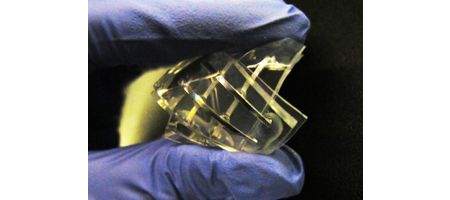Researchers from North Carolina State University have developed a soft, flexible memory device that can function well in wet environments – perfect for electronic devices designed to work in and with the human body.

“We’ve created a memory device with the physical properties of Jell-O,” says Dr Michael Dickey, an assistant professor of chemical and biomolecular engineering.
“Our memory device is soft and pliable, and functions extremely well in wet environments – similar to the human brain.”
The devices are made using a liquid alloy of gallium and indium metals set into water-based gels, similar to the gels used in biological research and just as compatible with the human body.
They function much like memristors, with two states – one in which they conduct, and one where they don’t. Unlike conventional electronics, which uses electrons to create the 1s and 0s used in binary language, the mushy memory device uses charged molecules, or ions.
So far, prototypes haven’t been able to hold much memory, say their creators, but they do work well in environments that would be hostile to traditional electronics. And they could be used to interface electronics with biological systems such as cells, enzymes or tissue.
“These properties may be used for biological sensors or for medical monitoring,” says Dickey.






